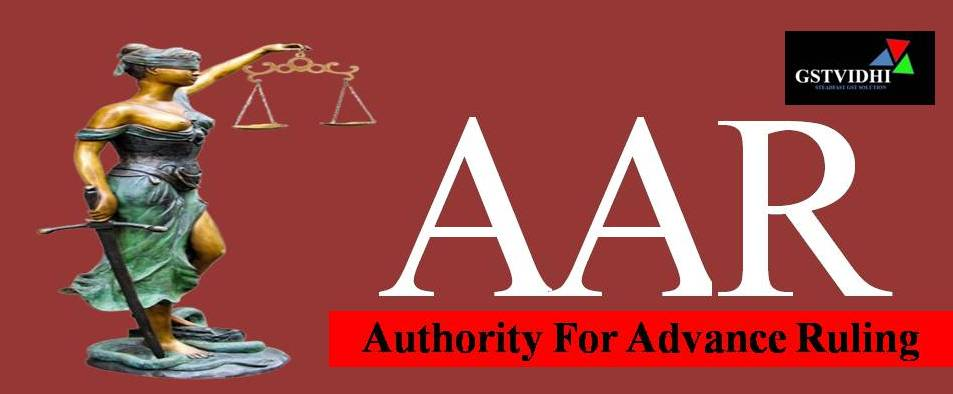
Applicability of GST Exemption on Storage and Warehousing of
Agricultural Produce
By Yogesh Verma (CS/ LLB) / 2 min. read / GST Advance Ruling
Name of the
Party: M/s Sardar Mal Cold
Storage & Ice Factory
Name of the
Ruling Authority: Rajasthan
Appellate Authority for Advance Ruling (AAAR), GST
Ruling No.: RAJ/AAAR/01/2018-19
Date of
Ruling: 15.10.2018
Summary of
Ruling:
- The appeal was filed against the
Advance Ruling No. RAJ/AAR/2018-19/03 dated 11.06.2018.
- The appellant sought clarification on
whether various stored goods qualify as "agricultural produce"
under GST law and are thus eligible for a NIL rate of duty.
- The AAAR upheld the AAR’s ruling,
stating that only unprocessed and naturally marketable agricultural
produce qualifies for exemption.
- Processed goods that alter essential
characteristics (e.g., dried turmeric, ginger, polished dates) do not
qualify for exemption and attract GST.
Facts of
Advance Ruling:
- The appellant, M/s Sardar Mal Cold
Storage & Ice Factory, provides storage and warehousing services
for various agricultural commodities.
- They contended that their services
should be exempt under Entry No. 24 of Notification No. 11/2017 –
Central Tax (Rate) dated 28.06.2017 and Notification No. 12/2017 –
Central Tax (Rate) dated 28.06.2017, which specify NIL GST for
services related to agricultural produce.
- A list of products stored at the
facility was submitted, categorized into different groups (A to G),
depending on whether they qualify as agricultural produce.
Question
Raised:
- Whether all goods listed by the
appellant qualify as agricultural produce under Explanation 4(vii)
of Notification No. 11/2017 – Central Tax (Rate) and Notification No.
12/2017 – Central Tax (Rate)?
- Whether storage of these goods
attracts a NIL rate of duty under the notifications?
Submission
Made by Applicant:
- The applicant claimed that their
stored goods do not undergo processing that alters essential
characteristics.
- Even if some cleaning or polishing
is done, it does not change the classification of these goods
as "agricultural produce."
- Reference was made to earlier tax
rulings and educational guides under the Service Tax regime, where
storage of agricultural produce was exempt.
- The appellant also referred to CBIC
Circular No. 16/16/2017-GST dated 15-11-2017, which clarified GST
applicability on warehousing of agricultural produce.
Relevant
Sections:
- Section 16 of the CGST Act, 2017:
Eligibility for Input Tax Credit (ITC).
- Section 17(5) of the CGST Act, 2017:
Blocked credits for certain goods and services.
- Entry No. 24 of Notification No.
11/2017 – Central Tax (Rate): Defines support
services to agriculture that qualify for NIL GST.
- Notification No. 12/2017 – Central
Tax (Rate), Entry No. 54: Lists agricultural
support services eligible for NIL GST.
Discussion
and Findings of Ruling Authority:
- The authority classified the stored
goods into two categories:
1. Eligible
for NIL GST: Unprocessed agricultural produce such as
raw coriander, cumin seeds, fennel, mustard, and poppy seeds.
2. Subject
to GST: Processed goods like dried turmeric, dried
ginger, polished dates, tamarind pulp, and cinnamon bark, which undergo
significant processing beyond farm-level activities.
- The ruling referenced CBIC
Circular No. 16/16/2017-GST, which states that only unprocessed
agricultural produce qualifies for exemption.
- The AAAR reaffirmed that processing
beyond basic farm-level activities alters the essential characteristics of
the produce, making them taxable.
Final
Ruling and Conclusion:
- AAAR upheld the previous AAR ruling,
confirming that only unprocessed agricultural produce is eligible
for NIL GST on storage services.
- Storage of processed agricultural
goods attracts GST as per applicable rates.
- The appeal was rejected, and
the appellant must charge GST on services related to processed
agricultural produce.
Disclaimer: All the Information is based on the notification, circular and order issued by the Govt. authority and judgement delivered by the court or the authority information is strictly for educational purposes and on the basis of our best understanding of laws & not binding on anyone.
Click here